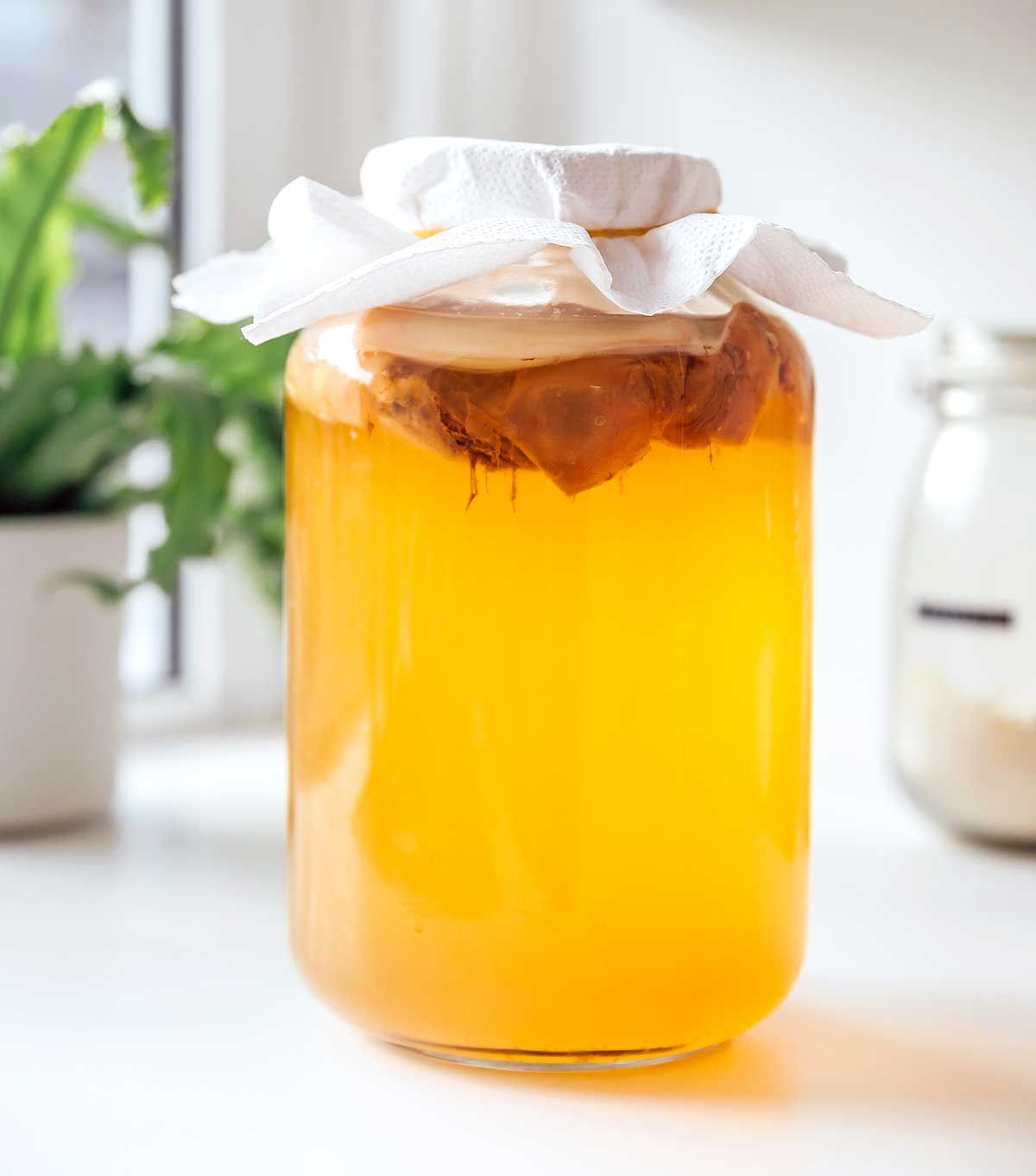

And if you do, well, that might just be the probiotics talking. For the rest of us, know that you won't likely feel a buzz after downing a bottle of lemon ginger kombucha. If you’re being strict about alcohol and caffeine but still thirsting for a refreshing, vinegary-in-a-good-way beverage, try a sparkling switchel, herbal oxymel tonic, or even an easily DIY’d vinegar shrub. And if you've quit caffeine cold turkey and now get the jitters just from drinking decaf coffee (which tends to have around 5 mg of caffeine per 8 oz serving), you might feel the kombucha too. But if you're someone like GT Kombucha founder GT Dave, who told us he drinks two gallons of booch a day, you'll definitely feel the caffeine. Even if you’re someone like me, who often drinks the whole bottle in one go, you’re still getting less than a quarter of the amount of caffeine in an 8 oz cup of coffee. It’s not an exact percentage-for reference, GT’s Kombucha contains anywhere from 8 mg to 14 mg of caffeine per 8 oz serving, and Health-Ade has between 6 and 10 mg of caffeine in that same amount. While the fermentation process does cut down on the tea’s natural caffeine content, about ⅓ of the caffeine remains. But replacing that morning cold brew with a bubbly cup of kombucha won’t provide that same caffeine jolt that gets you to work on time. So what about the caffeine part? Kombucha is commonly brewed from black or green tea, so it's true that most kombucha contains some amount of caffeine. "Because real kombucha is naturally fermented and not pasteurized to kill the beneficial yeast and bacteria, the trace amount of alcohol in kombucha varies from brew to brew." "It’s a constant cycle and thus the alcohol in kombucha is self-limiting, unlike beer or wine, which are intentionally brewed to have higher alcohol content," says Trout. As yeast consumes and ferments sugar to produce CO2 and ethanol (along with that distinct probiotic tang), some alcohol remains in the final product. "But kombucha is alive! And living foods are a lot more complex."įor starters, it’s true that kombucha’s fermentation process does create some alcohol. So, why all the confusion? "Most packaged foods on the market are processed and pasteurized, and are thus pretty straightforward and consistent," says Health-Ade Kombucha CEO Daina Trout.


"Can you get drunk off kombucha tea?" "Could kombucha really have caused Michael Floyd’s failed alcohol test?" Yeah, probably not. I was just trying to get my fix of bubbly, funky kombucha.īy now, you may have read panicked headlines about the debated alcohol percentage of kombucha. This isn’t unusual-I have round cheeks and penchant for wearing pastel hair clips that would put a third grader to shame-but I wasn’t buying beer. Said differently, Kevita has 5 to 7 times more caffeine than its competitors. By contrast, most other kombucha brands have just 10-15 milligrams of caffeine. But if you’re NOT looking for your kombucha to replace your coffee, then opting for a lower caffeine kombucha brand might be best. A few years ago, I got carded at a bodega. Now, if that’s what you are after, then great.


 0 kommentar(er)
0 kommentar(er)
